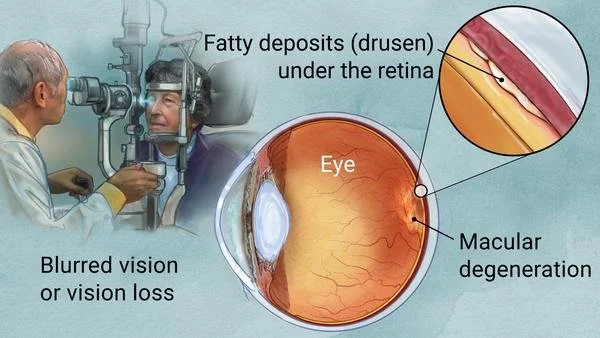Don’t Let Smoke Get In Your Eyes! Why Should You Quit?
All over America, people are trying to quit smoking, with good reason. Smoke gets in your eyes.
Smoking triples the risk of developing macular degeneration!
Did you know that smoking is a major risk factor for vision loss and a leading cause of illness and death? It's time to break free from the grip of tobacco and embrace a healthier lifestyle. By reducing or eliminating your smoking habit, you can significantly lower the risk of vision loss and improve your overall well-being.
Smoking is strongly linked to the development of serious eye diseases, with age-related macular degeneration (AMD) being the primary cause of vision loss in older Americans. By quitting smoking, you can help safeguard your eyesight and reduce the chances of AMD affecting your life.
But the impact of smoking goes beyond vision alone. Cigarette smoke also increases the risk of developing cataracts, a condition that clouds the lens of the eye and affects vision. Moreover, if you have diabetes, hypertension, or heart disease, smoking amplifies the complications associated with these conditions. Additionally, smoking raises the risk of stroke, a potentially life-threatening event.
It's important to recognize that smoking is a significant contributor to illness and mortality. Shockingly, around 430,700 people lose their lives every year due to smoking-related diseases. Smoking is a known cause of cancer, heart disease, and stroke, and in individuals aged 75 and older, half of all deaths are attributed to smoking-related illnesses. These conditions not only cut lives short but also severely diminish the quality of life for those affected.
The risk of developing smoking-related illnesses escalates with the number of cigarettes smoked and the duration of smoking. Even children raised in smoking households face a higher likelihood of developing asthma and other respiratory problems. The harmful effects of smoke extend beyond smokers themselves and can exacerbate ocular allergies in both smokers and nonsmokers alike.
If you've attempted to quit smoking before, you understand the challenges involved. Nicotine is a highly addictive substance, making quitting a difficult endeavor. However, don't lose hope! With determination and the right support, anyone can conquer the smoking habit, regardless of age, health status, lifestyle, or years spent smoking.
Take advantage of smoking cessation programs available in your local community. These programs often offer a combination of effective methods to increase your chances of success, such as nicotine patches or gum, support groups, and stress management techniques. Consult your primary care doctor for information on local programs that can assist you in quitting smoking for good. You can also reach out to local hospitals and health departments, as they frequently provide smoking cessation resources.
In addition to quitting smoking, prioritize your eye health by scheduling annual eye examinations. Early detection of diseases significantly reduces the likelihood of complications down the road. The American Optometric Association strongly encourages individuals not only to quit smoking but also to undergo regular eye exams, ensuring that potential issues are identified and addressed promptly.
Remember, quitting smoking is a powerful step toward a healthier life. Seize this opportunity to protect your vision, improve your overall health, and embrace a brighter future free from the harms of smoking. You have the strength to make a positive change—take the first step today!

